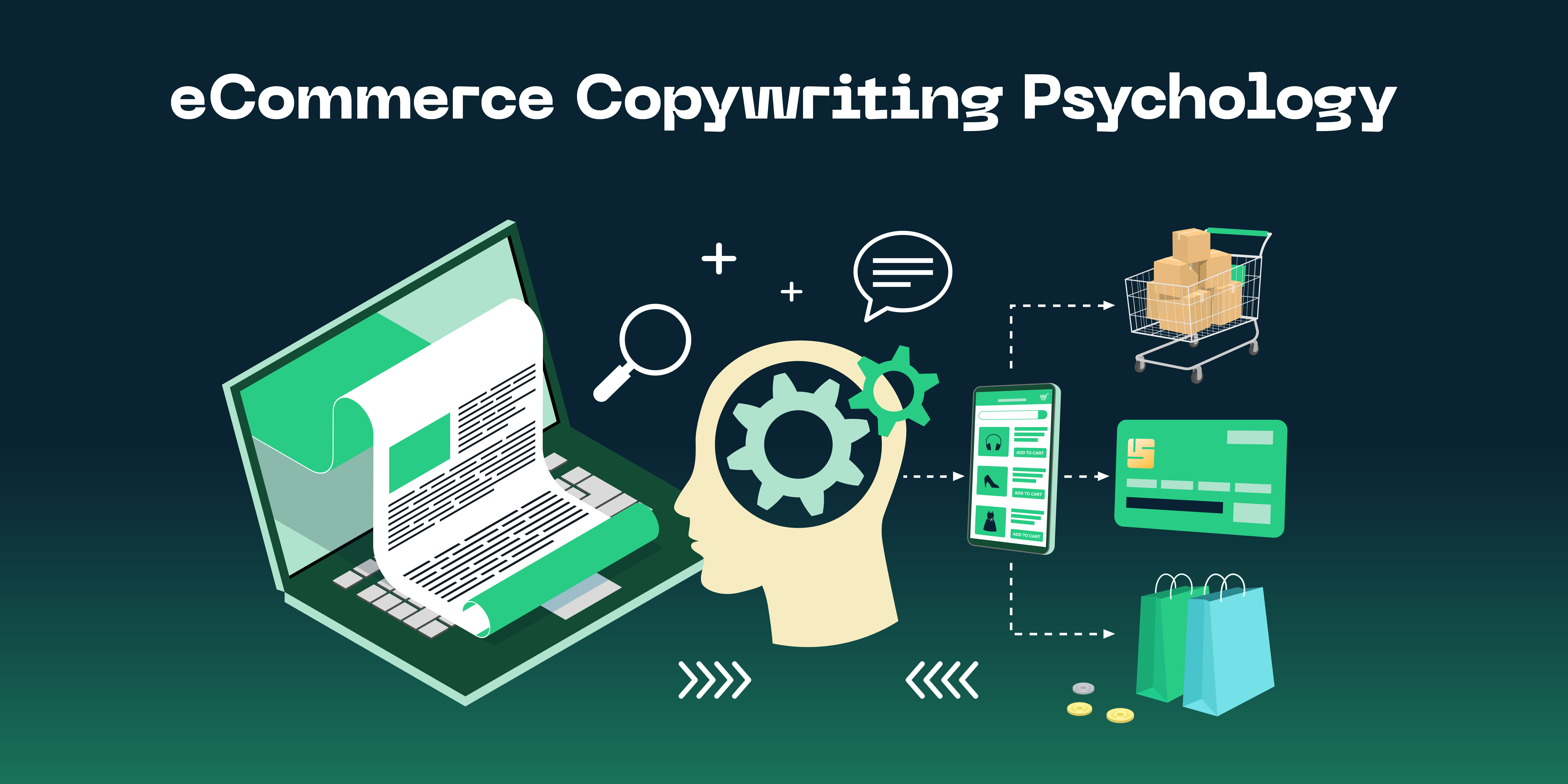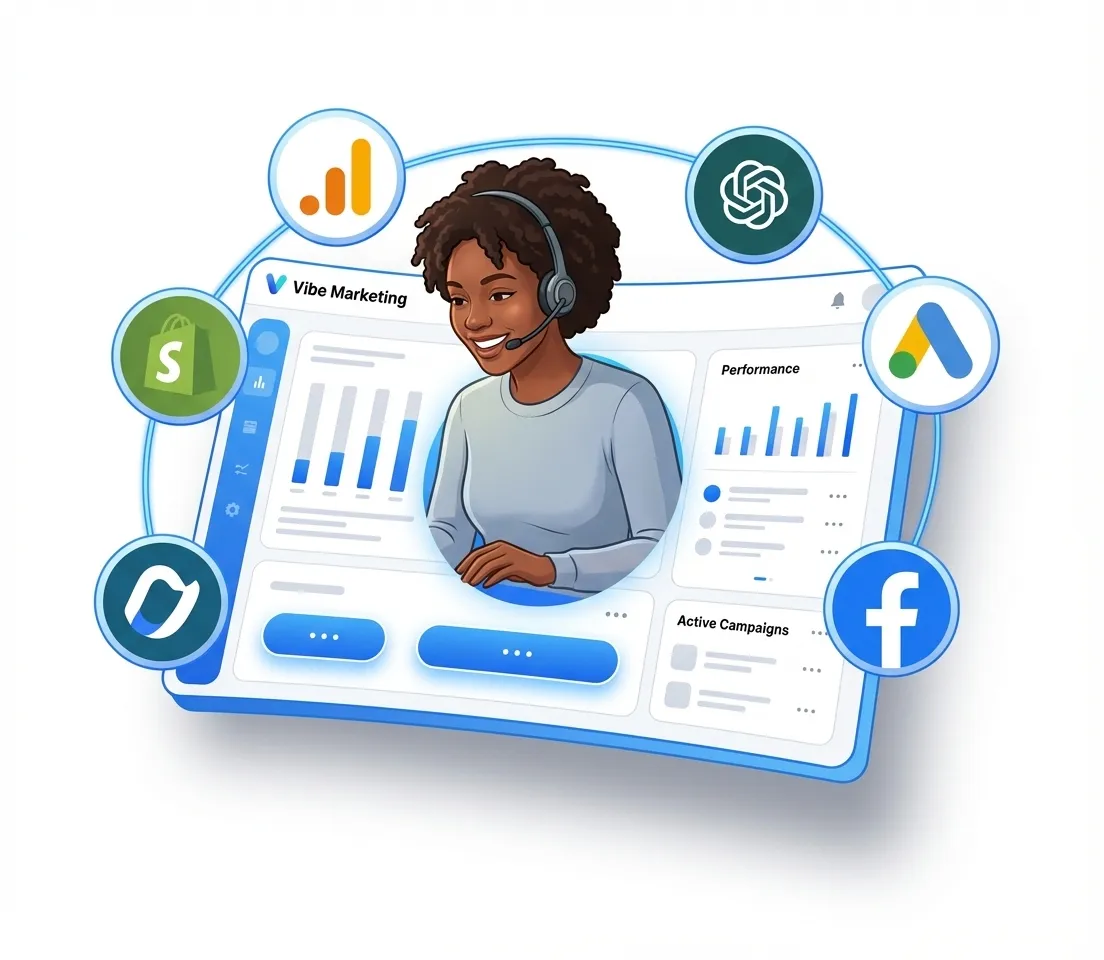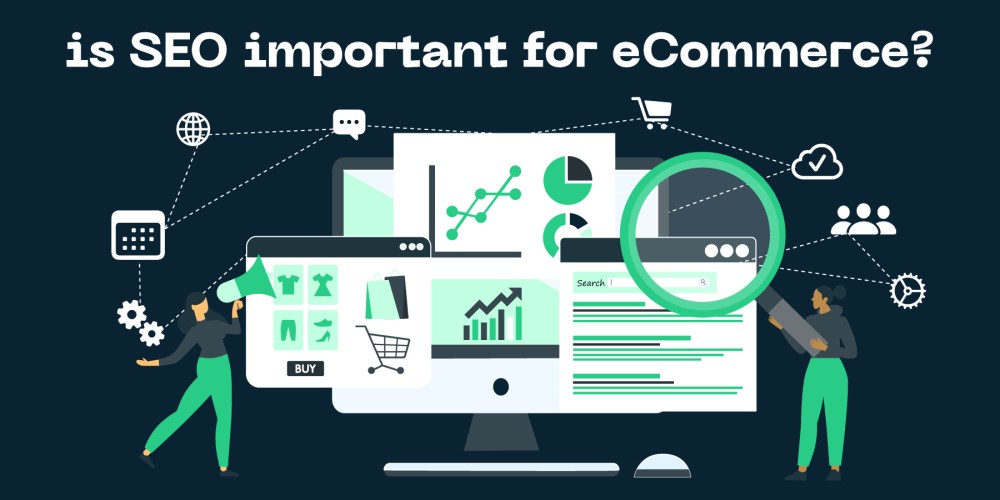Copywriting Psychology for eCommerce: Guide to 2x Your Conversions

Understanding eCommerce Copywriting Psychology
The Importance of Copywriting in eCommerce
Understanding the importance of copywriting in the realm of eCommerce is the key for any store owner or marketer who aspires to boost their conversion rate. Effective eCommerce copywriting is more than just providing product descriptions or catchy headlines. It’s about understanding the psychology of your potential customers; their motivations, desires, and objections, and using persuasive copywriting techniques to encourage them to make a purchase.
Copywriting psychology is an invaluable tool in the world of eCommerce. When implemented correctly, it helps create a connection between your brand and your customers, building trust and loyalty. It enables you to communicate your brand message effectively, to answer your customer’s common questions, and to dispel their doubts. Above all, it enables you to convince your customers that your product is exactly what they need.
Understanding eCommerce copywriting psychology can significantly increase your sales. By tapping into the psychology of your audience, you can craft compelling copy that not only speaks to their needs and wants but also triggers the necessary emotional responses to motivate them to take action. However, to achieve these optimal results, you must ensure that your copy is not only persuasive but also accurate, informative, and tailored to your target audience. This will ensure that your potential customers feel understood, valued, and more inclined to make a purchase.
How Psychology Influences Purchasing Decisions
Psychology plays an integral role in influencing purchasing decisions among consumers. The understanding of eCommerce copywriting psychology helps to highlight the motivations, behaviors, and preferences of your target customers, thus leading to increased online sales. By fully understanding how to tap into the psychological triggers of your potential clients, you can craft compelling copy that drives action.
One of the key psychological factors that influence purchasing decisions is the principle of reciprocity. This principle is based on the natural human instinct to return favors. By offering your customers something of value first, be it useful content, free samples, or exclusive discounts, they are more likely to feel obligated to make a purchase from your store. This is a potent tool that can be harnessed in eCommerce copywriting to drive customer conversion rates.
Emotions also significantly impact purchasing decisions. Research has shown that most purchases are driven by emotions, rather than logical thought. Therefore, compelling eCommerce copywriting should appeal to the emotions of the readers, evoking feelings of desire, urgency, or fear of missing out. By making your customers feel something, you increase the chances of them making a purchase.
The Basics of eCommerce Copywriting Psychology
The Principle of Reciprocity
One of the most important concepts to understand in ecommerce copywriting is the Principle of Reciprocity. This principle, rooted in social psychology, states that people tend to return a favor when something beneficial is done for them. In other words, if you give your customers something of value, they are more likely to give something back - in ecommerce, this usually means making a purchase or becoming a repeat customer.
Integrating the Principle of Reciprocity into your ecommerce copy can significantly boost your conversion rates. For instance, by giving customers helpful information, exclusive discounts, or free gifts with their purchases, you create a sense of indebtedness. This feeling often prompts customers to return the favor by making a purchase, leaving a positive review, or recommending your store to others. So, applying the Principle of Reciprocity isn't just about increasing immediate sales, but also about building long-term customer relationships.
In conclusion, effective ecommerce copywriting isn't just about convincing people to buy—it's about giving them solid reasons to. The Principle of Reciprocity is a powerful tool in your ecommerce copywriting arsenal, so make sure you're using it to its full potential. Remember, the more you give, the more you'll get back in return.
The Principle of Scarcity
The Principle of Scarcity, which is a crucial aspect of eCommerce copywriting psychology, revolves around the concept that people are more inclined towards purchasing a product if it’s in limited supply or available for a short period. The fear of missing out on a great deal or a unique product often prompts customers to make a purchase they may have otherwise spent more time contemplating. This principle is why you often see phrases like "Limited Stock" or "Offer Ends Soon" in eCommerce copywriting.
When effectively utilized, the Principle of Scarcity can significantly boost your conversion rates. As an eCommerce store owner or marketer, you should leverage this principle in your product descriptions, sales copies, and even in email marketing campaigns. However, remember to use this strategy wisely and honestly. If customers realize that your scarcity claims are not genuine, they may lose trust in your brand, which could negatively impact your sales.
Implementing the Principle of Scarcity is not merely about creating a sense of urgency. It’s also about emphasizing the unique value of your products. By highlighting limited edition products, exclusive features, or special offers, you can make your customers feel that they are getting something exceptional. This aspect will make your product more desirable and hence, more likely to sell.
Utilizing eCommerce Copywriting Psychology for Higher Conversion Rates
Creating Urgency and Exclusivity
Creating a sense of urgency and exclusivity can be a powerful tool in eCommerce copywriting psychology. By instilling a feeling of urgency, you can stimulate quick decision-making and prompt customers to purchase your product immediately. This can be achieved by using time-sensitive language, such as "limited time offer" or "only a few items left." Such phrases can incite a fear of missing out (FOMO) and encourage customers to act faster than they usually would.
Exclusivity, on the other hand, can make customers feel special and privileged. When people believe they have access to products or deals that others don’t, they’re more likely to make a purchase. This notion can be elicited by using phrases like "exclusive offer" or "members only." Not only does this create a sense of belonging, but it can also enhance customer loyalty and drive repeat purchases.
However, it’s important to use these tactics with caution. Overusing them can lead to customer skepticism and could potentially damage your brand’s trust and credibility. Consistently delivering on the promises made in your copywriting is key to maintaining a positive relationship with your customers, and ultimately achieving higher conversion rates.
Leveraging Social Proof
One of the most effective techniques to leverage eCommerce copywriting psychology for higher conversion rates is by leveraging social proof. Social proof is a psychological phenomenon where people mimic the actions of others in an attempt to reflect correct behavior for a given situation. In the context of eCommerce, social proof can be seen when customers are influenced by the actions or reviews of other customers.
Why is social proof important? Firstly, social proof builds trust. Seeing positive reviews, ratings, and testimonials from other customers can increase a potential customer’s trust in your product or service. Secondly, social proof creates a sense of popularity around your product. The more people talk about your product, the more it's perceived as popular and therefore, desirable.
As an eCommerce store owner or marketer, leveraging social proof can be a powerful tool in your arsenal. Highlight real reviews and testimonials on your product pages, showcase how many people have bought the product, or even show how many people are currently viewing it. These small details can have a significant impact on your conversion rates, helping you increase your sales through the power of eCommerce copywriting psychology.
Real-life Examples of Effective eCommerce Copywriting Psychology
Case Study 1: How Brand A leveraged scarcity
In our first case study, we examine how Brand A effectively employed the psychological principle of scarcity in their eCommerce copywriting strategy. Scarcity, in psychological terms, is the perception that a product or service is in limited supply and thus more valuable. Brand A utilized this principle by creating a sense of urgency in their product descriptions and promotional materials. This strategy encouraged their potential customers to make a purchase promptly, believing that the product may not be available later.
For instance, Brand A would often showcase phrases such as "Limited stock available" or "Only a few items left" on their product pages. These phrases subtly hinted to a customer that they need to act quickly if they want to secure the product. Brand A also used time-bound promotions, offering exclusive deals that were set to expire after a specific time. This created a sense of urgency, pushing customers to make a purchase immediately to take advantage of the offer.
Brand A's strategic use of scarcity in their eCommerce copywriting significantly increased their sales. The perceived urgency and exclusivity effectively nudged customers to make quicker purchasing decisions. This case reaffirms the power of leveraging psychology in eCommerce copywriting. Using simple yet powerful phrases that invoke a sense of scarcity can lead to a noticeable increase in the conversion rate and overall sales volume. If you're an eCommerce store owner or marketer, applying similar strategies could be a game-changer for your business.
Case Study 2: How Brand B utilized social proof
Brand B, a prominent player in the fashion industry, realized the potential of ecommerce copywriting psychology and took it a notch higher by exploiting the power of social proof. Social proof is a psychological phenomenon where people copy the actions of others in an attempt to reflect correct behavior. Brand B incorporated this concept into their online store by highlighting customer reviews, ratings and testimonials on their product pages. This thoughtful placement of social proof was a game-changer, resulting in a dramatic increase in conversion rates.
What set Brand B apart was their unique approach to presenting social proof. Rather than merely displaying customer reviews, they went a step further and added pictures of real customers using their products. They also integrated user-generated content from social media platforms where customers shared their positive experiences with the brand. This not only provided visual proof to potential buyers but also boosted the credibility of the reviews.
Furthermore, they utilized the power of influencers and celebrities in their copy. They strategically placed endorsement testimonials from famous personalities on their homepage and product pages. This strategic use of social proof created a sense of trust and authenticity around the brand and its products. The takeaway from Brand B’s success story is that incorporating social proof into your ecommerce copywriting strategy can significantly boost your sales and conversion rates. However, it’s also important to present the social proof in a way that is relatable, trustworthy, and engaging for your potential customers.
Implementing eCommerce Copywriting Psychology in Your Business
Strategies for Effective Copywriting
Implementing eCommerce copywriting psychology in your business is a strategic approach to engage your customers and increase your sales. To effectively make use of this strategy, it is important to be conscious of the language you use, the emotions you evoke, and the overall message you portray in your copy. Crafting your copy with a clear understanding of your target audience’s mindset, needs, and desires can significantly increase your conversion rate and overall success.
Personalization is a potent strategy in eCommerce copywriting psychology. This technique involves tailoring your copy to speak directly to your potential customer, making them feel seen, understood, and valued. Rather than generic mass messages, personalized copy resonates more with your audience and increases the likelihood of them making a purchase.
Another effective strategy is harnessing the power of scarcity and urgency. When customers perceive that a product is scarce or a discount is soon ending, they are more likely to act quickly and make a purchase. However, be cautious not to overuse this technique as it can backfire and make your business seem insincere.
Lastly, integrating the principle of social proof in your eCommerce copywriting psychology can significantly boost your sales. Sharing testimonials, reviews, and endorsements can greatly influence your potential customers’ purchase decisions. It provides reassurance and credibility, which can be the deciding factor for many shoppers.
Tips for Monitoring and Improving Conversion Rates
One of the most effective strategies to improve your conversion rates is to use eCommerce copywriting psychology. The words you choose and the way you present them can have a significant impact on influencing your customer’s purchasing decisions. The goal is to create copy that resonates with your audience on an emotional level, building trust and creating a sense of urgency.
Know Your Audience. Understanding who your audience is crucial. Knowing their needs, wants, fears, and desires allows you to craft copy that speaks directly to them. Use this knowledge to highlight the benefits of your product and how it can solve their problems.
Build Trust. Trust is a crucial factor in driving conversions. Highlight testimonials, reviews, and endorsements to show that other customers have had a positive experience. Use clear and straightforward language to avoid confusion and ensure that your customer knows exactly what they are getting.
Create a Sense of Urgency. Urgency encourages customers to act quickly and can significantly increase your conversion rates. Use phrases like "limited time offer" or "only a few items left" to create a sense of scarcity and urgency.
By implementing these strategies, you can leverage eCommerce copywriting psychology to increase your sales and improve your conversion rates. Remember, it’s all about creating a connection with your audience and persuading them to take action.




